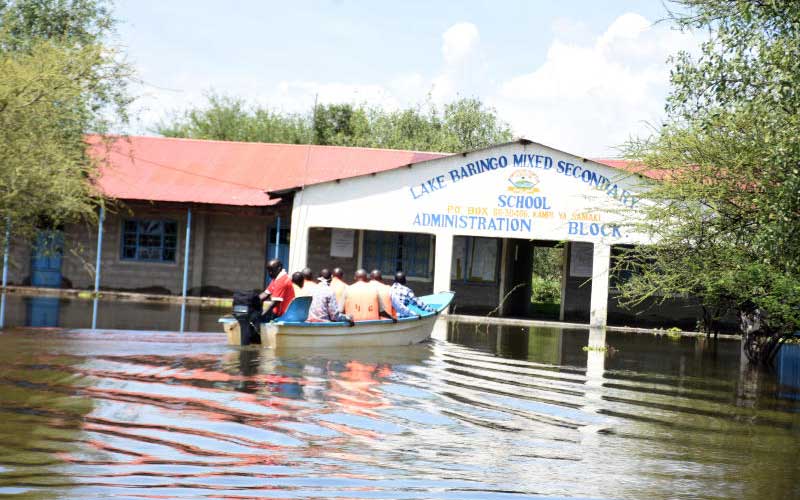×
The Standard e-Paper
Stay Informed, Even Offline

Flooded Lake Baringo Secondary School caused by the rising waters of Lake Baringo. [Kipsang Joseph, Standard]
Parents are not ready to pay fees when schools reopen on Monday, saying they are still smarting from adverse effects of coronavirus that led to job losses and huge a dip in income.